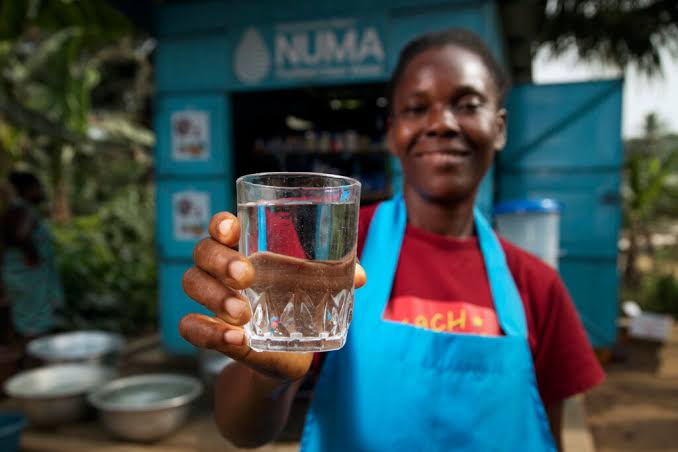Access to clean and safe drinking water is a fundamental human right, yet millions of people in Africa still lack this essential resource. In response to this pressing issue, various initiatives and organizations have been working tirelessly to ensure that clean water reaches every corner of the continent. This article delves into the challenges, innovations, and efforts that are shaping clean water initiatives in Africa.

1. The Water Crisis in Africa
Africa is a continent of contrasts, where some regions have abundant water resources, while others face severe water scarcity. Despite its vast rivers and lakes, millions of Africans still struggle to access clean water for drinking and sanitation. Waterborne diseases, such as cholera and typhoid, remain a significant threat in many communities.
2. The Role of NGOs and International Organizations
Non-governmental organizations (NGOs) and international organizations play a vital role in addressing Africa’s water crisis. Organizations like Water.org and UNICEF are actively involved in providing funding, expertise, and resources to improve water infrastructure and access.
3. Innovative Water Solutions
Innovations in water purification and distribution are transforming the landscape of clean water initiatives. Solar-powered water pumps, portable filtration systems, and rainwater harvesting techniques are making clean water more accessible in remote areas.
4. Community-Led Water Projects
Community engagement is a cornerstone of successful clean water initiatives. Many projects empower local communities to take ownership of their water sources, ensuring long-term sustainability and maintenance.
5. Public-Private Partnerships
Public-private partnerships are instrumental in expanding access to clean water. Collaborations between governments, private companies, and NGOs enable the efficient management and funding of water projects.
6. The Impact on Health and Education
Access to clean water has a profound impact on public health and education. Children are healthier and can attend school regularly when they have safe drinking water. Reduced waterborne diseases also ease the burden on healthcare systems.
7. Women and Water Collection
In many African communities, women and girls bear the responsibility of fetching water, often walking long distances. Clean water initiatives that bring water closer to homes can alleviate this burden, allowing women and girls to pursue education and economic opportunities.
8. Challenges in Infrastructure and Maintenance
African countries face significant challenges in building and maintaining water infrastructure. Aging pipes, leaks, and insufficient funding often hinder progress. Regular maintenance and investment in infrastructure are crucial to ensuring a consistent supply of clean water.
9. Climate Change and Water Security
Climate change poses a threat to water security in Africa. Erratic rainfall patterns, prolonged droughts, and flooding can disrupt water sources and exacerbate water scarcity issues. Resilient water management strategies are needed to address these challenges.
10. Achieving Sustainable Development Goals
Access to clean water is a critical component of achieving the United Nations Sustainable Development Goals (SDGs). Specifically, Goal 6 aims to ensure the availability and sustainable management of water and sanitation for all by 2030.

Clean water initiatives in Africa are essential for improving public health, advancing education, and reducing poverty. While significant progress has been made, challenges persist, and there is much work to be done. The commitment of governments, NGOs, communities, and individuals is vital in ensuring that every African has access to clean and safe drinking water. As these initiatives continue to evolve and innovate, the dream of a water-secure Africa draws closer to reality.

